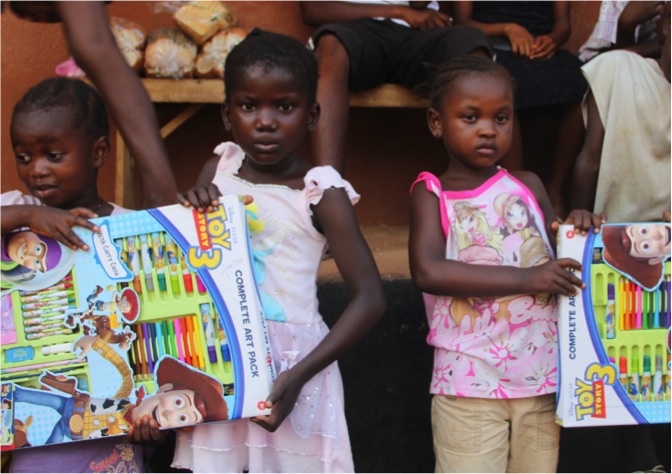Executive Chair Sarah Brown: Schools must reopen to stop Ebola

The following, by GBC-Education Executive Chair Sarah Brown, originally appeared on the Education for All blog of the Global Partnership for Education. It highlights the report released last week by the Global Business Coalition for Education in collaboration with A World at School that calls for the responsible reopening of safe schools in response to the Ebola crisis.
The more I have campaigned this year for global education, the more I have come to realize that achieving our goal of getting every child into school is based on our ability to work hand-in-hand with global health.
There is no example more evident than the case of Ebola in West Africa, which is destroying the lives of some of the most marginalized in Guinea, Liberia and Sierra Leone.
As the public health community works to stop the rising death toll from the virus, the immediate crisis has a much deeper reach. The lives of nearly five million children have been put on hold. Their schools are closed, many being used as patient-holding facilities. Opportunities have been halted and the immediate prospects for these children are grim.
Poverty and gender combine to create a high-risk scenario in which girls are victims of early pregnancy and marriage, children are forced to work to support their families, children become caretakers or orphans and outlooks become less likely to include a sense of hope or optimism. All at the same time, making young people more vulnerable to disease and less likely to return to school.
The case of Ebola is an instance in which, as a matter of immediate priority, we can bring education and health together to have an even more comprehensive response for these five million children. Following the model of the Safe Schools Initiative in northern Nigeria, today the business sector is making the case for the responsible reopening of safe schools as quickly as possible so that we avoid an additional five million casualties of the crisis.
The report by the Global Business Coalition for Education and A World at School outlines a three-fold response to the Ebola crisis in which education plays a pivotal role in restoring communities. Firstly, while schools may need to be closed in some communities under direct and immediate high risk of Ebola transmission, there is a case for interim provision for education and continuing payment of teacher salaries.
But as infrastructure and quality may be less than ideal, we must move quickly to the second stage – the responsible reopening of schools to control the spread of Ebola and simultaneously restoring hope and opportunity in communities.
Governments must agree on the key components of a safe school and move forward with implementation. Strategies may include public cleaning and disinfecting of schools, ensuring hand-washing facilities and public health supplies, providing teachers with accurate information and training, using schools for tracing and monitoring, implementing school feeding programs and supporting the physical and mental health of students who have suffered losses.
In a safe school, we envision adequate training of teachers about Ebola, twice-daily temperature checks, monitoring early signs of outbreaks and implementing emergency response plans should suspicion of infection arise. Nigeria mandated that schools be a first line of defense in their Ebola response. And during the SARS epidemic, Singapore used schools to monitor and stop the spread of the virus while continuing the education of young people.
The third piece of the education response to Ebola involves the longer-term preventative public health programming and development of contingency plans for the future. The only way to build sustainable schools and healthy communities is if we come together to make the convergence of education and health a reality.
National governments want to make this work and have already started to develop plans with on-the-ground UN agencies that are ready to roll out. And local education groups are now taking up the issue. In the absence of an emergency fund for education, the business community is putting a solution on the table to help persuade donors to act.
Earlier this year, a “Grand Convergence” was proposed – a set of global health goals to be achieved within a generation. The idea is to link up all the global health initiatives to form a single strategic partnership aimed at securing better health for everyone.
I argued at the time that education could not be left out of the equation. That if the world wants to tackle the high death rates from under-fives mortality, AIDS and tuberculosis, it would have to invest in education.
Education and literacy can help the most vulnerable to avoid succumbing to illnesses and disease.
Ebola is a case in point. Education can help to ensure that children get potentially lifesaving information about preventing the spread of Ebola and accessing health services.
If we are serious about putting the lives of children first, then investing in the Ebola public health response without investing in education is a non-starter.
